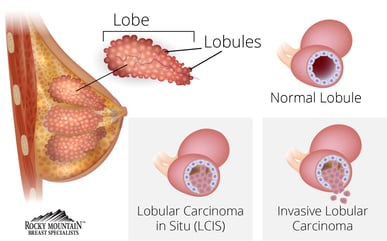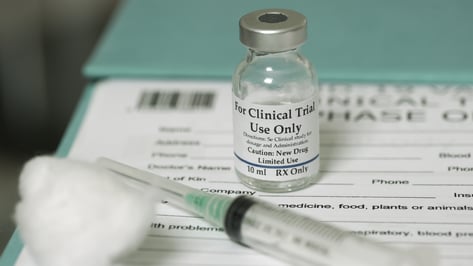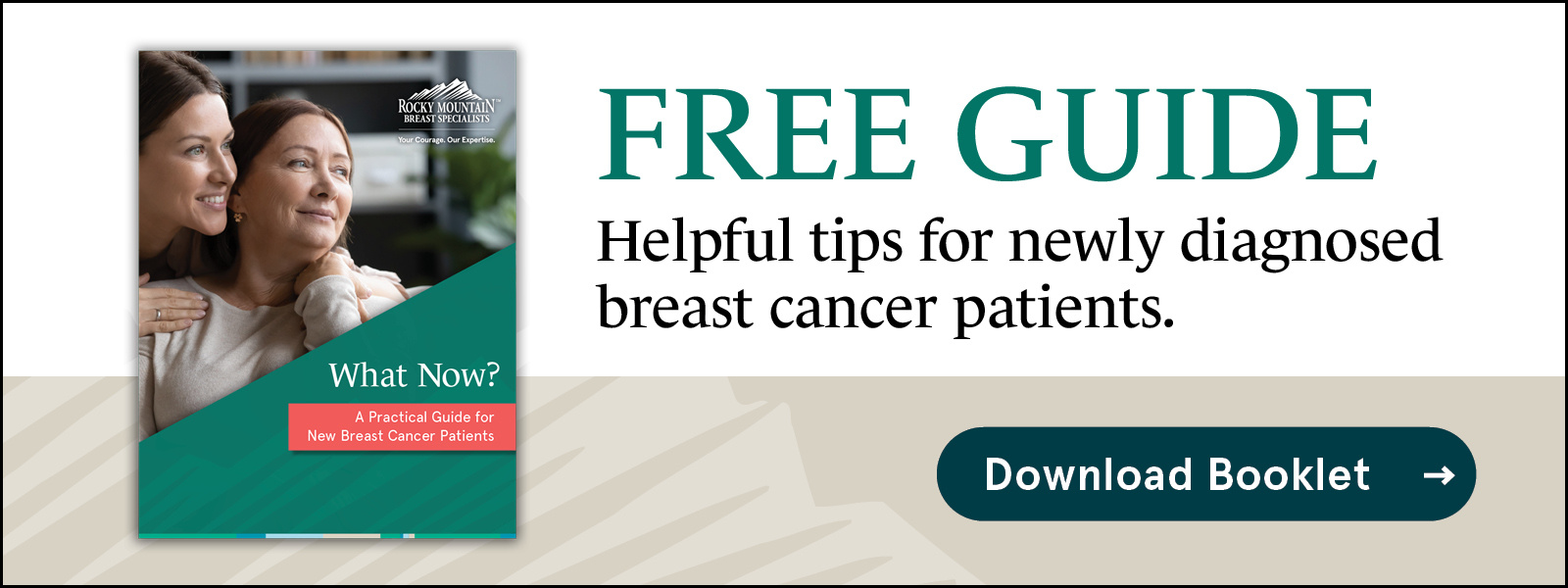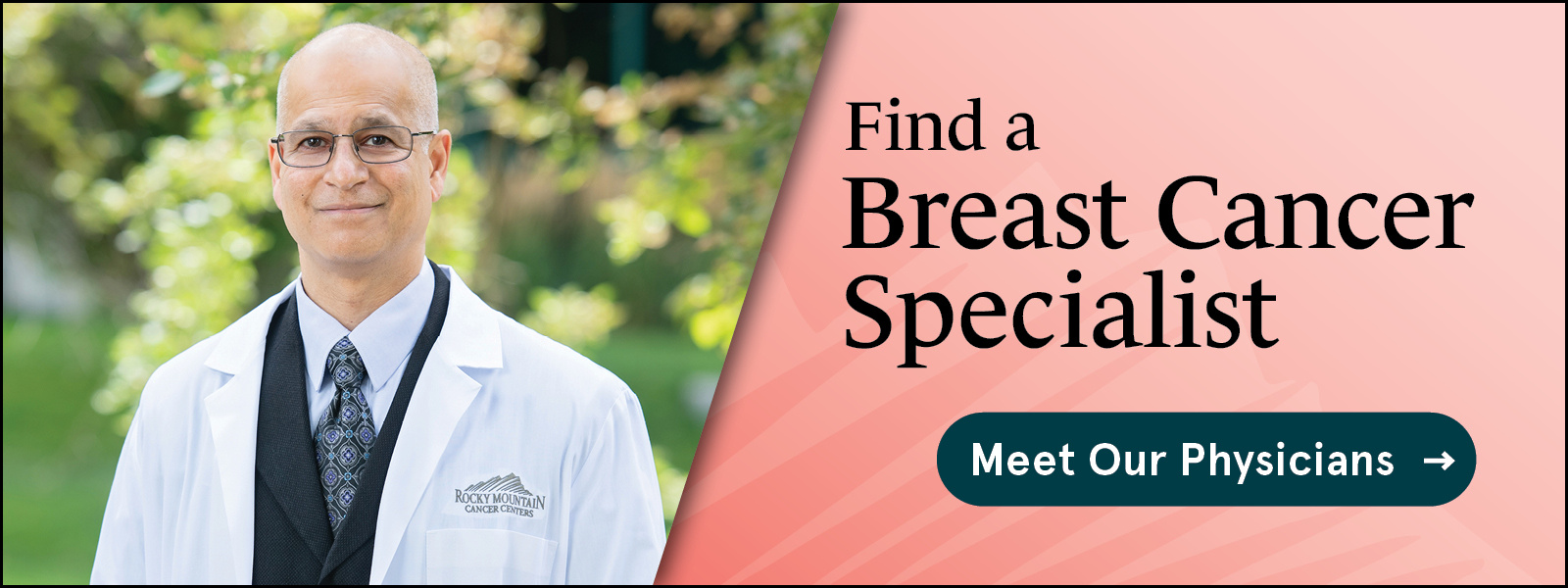Cultivating Something New: Life After a Breast Cancer Clinical Trial
6 min read

Tracy Calocci wasn’t born in Colorado, but after living in the state for more than 25 years, she can’t imagine calling any other place home. She adores spending time outdoors with her husband and two sons. She is also devoted to her busy career as a certified nurse midwife. Before a diagnosis of lobular breast cancer in 2018, she couldn’t imagine anything getting in the way of the camping, hiking, mountain biking, rock climbing, and skiing she loves. Now, after completing treatment, Tracy is learning to navigate her new life. She’s also proud to make the path for future patients a little easier with her participation in a breast cancer clinical trial.
A Surprising Test Result After Breast Cancer Screening
Tracy never skipped a mammogram. Due to a family history of breast cancer, she also got regular MRIs to help detect hard-to-see cancer. Into her early 40s, all her tests had been normal.
Learn more about breast cancer screening tests.
However, while she was in graduate school, her busy schedule led Tracy to skip two of her routine MRIs. After a friend encouraged her to get the screenings once again, Tracy said the MRI did not go as she had anticipated. At age 45, she was diagnosed with invasive lobular breast cancer.
“At the time of the diagnosis, I felt extremely healthy and had no symptoms,” Tracy said. “We have a strong family history of breast cancer. Almost every female on one side of the family tree has had some kind of breast or ovarian cancer, but my mom doesn’t have breast cancer. She tested negative for breast cancer-related genes, and I had also previously tested negative for the genes. So, we had this false sense of security. It was definitely extremely shocking.”
What Is Lobular Breast Cancer?
The most common type of breast cancer is invasive ductal carcinoma, or IDC, which accounts for about 80% of breast cancers. The second most common is invasive lobular carcinoma, or ILC. Approximately 10% of all breast cancers are ILC.
Invasive ductal carcinoma starts in the glands of the milk ducts. In ductal cancer, cancer cells often clump together, creating a lump in the breast.
Because of the shape of ILC, it can be more difficult to detect during a breast exam, mammogram, or ultrasound.
Invasive cancer means that it has spread into the surrounding tissue. However, it doesn't necessarily mean it's spread to nearby lymph nodes or other parts of the body. The extend of the breast cancer will be determined through the staging process. Metastatic breast cancer is stage IV (four) and that means it has spread to distant areas of the body.
ILC is more likely to occur in both breasts or spread to the digestive tract, the lining of the lungs, or ovaries than other types of breast cancer. It’s also four times more likely to reoccur than IDC. Recurrence of ILC often happens years after the initial diagnosis and treatment.
Symptoms of lobular breast cancer may include:
 Changes to the shape or size of the breast or nipple
Changes to the shape or size of the breast or nipple- Skin dimpling or puckering on the breast
- A heaviness or fullness in one or both breasts that is not related to your menstrual cycle.
Treatment options for invasive lobular carcinoma are typically the same as that of IDC. However, breast cancer research has focused primarily on IDC. So, it still isn’t known for sure which treatment option is the most effective for ILC.
Pushing Through Breast Cancer Treatment
Within three weeks of her diagnosis, Tracy had undergone a double mastectomy and breast reconstruction. She was immediately referred to board-certified medical oncologist Dr. Dev Paul, DO, PhD, FACP, at Rocky Mountain Breast Specialists, who came highly recommended.
During her surgery, it was found that the cancer had spread to Tracy’s lymph nodes. After the surgery, the cancer was upgraded from stage one to stage three when the pathology results came in.
Learn more about how to understand your breast biopsy pathology report.
About six weeks after surgery, Tracy began chemotherapy treatment, overseen by Dr. Paul. She received eight rounds of chemotherapy over a four-month period. Her cancer care team suggested taking a break between chemotherapy and radiation therapy. However, Tracy was eager to get through treatment and return to her full life. So, she started six weeks of radiation.
“I’m a very list-oriented, type-A hard worker,” Tracy said. “So, I took my list of stuff that Dr. Paul told me to do, and I just charged down that list and did everything. It was really hard, but I tackled it, like I do training for anything physical that's difficult. I just put my nose to the grindstone and moved through it. But it made me feel terrible, and it was hard. I remember walking was extremely difficult during treatment. Even going on a 20-minute walk was really hard.”
Tracy knows her cancer diagnosis and treatments were difficult for her family and friends, too, and she’s grateful for their unwavering support. Her husband, a firefighter, has been by her side every step of the way and made sure she always had what she needed, including quiet time to rest. The firefighting community also stepped up to help her and her family get through the most challenging moments.
Clinical Trial for Late-Stage Breast Cancer
 After radiation, Dr. Paul let Tracy know that she met the eligibility criteria for a clinical trial and asked if she would like to participate. The study looked at the effectiveness of a targeted therapy drug called abemaciclib in treating advanced breast cancer with a high chance of recurrence.
After radiation, Dr. Paul let Tracy know that she met the eligibility criteria for a clinical trial and asked if she would like to participate. The study looked at the effectiveness of a targeted therapy drug called abemaciclib in treating advanced breast cancer with a high chance of recurrence.
Tracy received abemaciclib for two years. Though the journey was challenging, her cancer is now undetectable.
Within a week of starting the clinical trial, Tracy experienced debilitating side effects. She considered quitting the study, but Dr. Paul recommended lowering the dose instead. Tracy was worried about ongoing side effects but continued receiving treatment.
The most challenging symptom for Tracy to manage was diarrhea. She lost about 40 pounds and had to stop eating her usual low-carb diet to gain and maintain her weight.
The treatment also affected Tracy’s immune system and lowered her ability to fight infection. This was especially challenging given her work as a nurse during the COVID-19 pandemic. She received the vaccine as soon as possible and is happy she hasn’t contracted COVID-19.
Tracy will continue to see Dr. Paul every six months for a total of ten years. She also keeps a diary of her symptoms to share with Dr. Paul and the research team. Although the study is ongoing, abemaciclib was approved by the FDA to treat certain breast cancers.
“Research will never be moved forward without that willingness to go for it,” Tracy said. “It’s really important for people to feel empowered to participate. Even if their study doesn't work, that’s important information as well. You have to try a lot of things that don’t work to stumble on the thing that does. So, people being willing to participate in breast cancer trials is really important.”
Sowing and Tending to a New Life
“For me, life’s been harder after cancer treatment,” Tracy said. “I assumed I was just going to get back to who I was. I was going to do all these things and check them off my list and then get back to who I was, and obviously that person is no longer here. I’m a different person, and I'm having to get used to that. I think of it like planting. You cultivate your life and you work really hard on growing the things in your life that you love. Then the landscape completely changes and you have to cultivate something new.”
Although she isn’t as physically active as she once was, Tracy continues to enjoy time outside, exercising regularly and continuing her work as a certified nurse midwife. Tracy is not a religious person, but she’s found comfort and strength in a mindfulness practice. As a part of her healing journey, Tracy started practicing yoga and making mala beads. These are a type of meditation or prayer beads that help her feel more centered and grounded.
“Cancer is very difficult, but it also forces you to look at life in a new way,” Tracy said. “I know that I’m very slowly beginning to see that having this new perspective is a gift. But it’s a slow burn because you'll always want what you had before. I’m beginning to realize that I look at things differently. I spend time with different people, and that’s become a wonderful thing. It’s just, I’m still – yeah – ask me in five years and I’ll probably say something really profound.”


